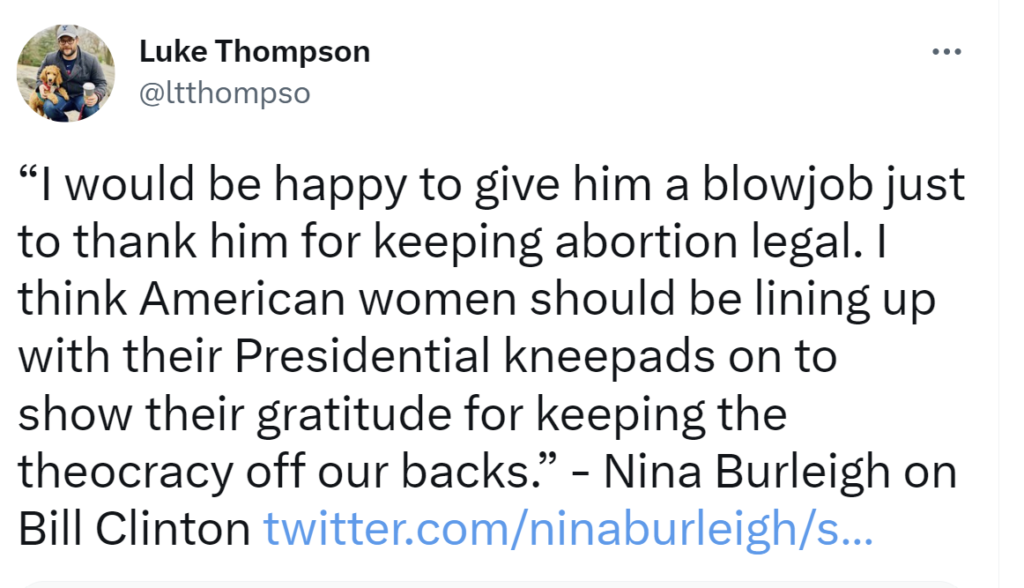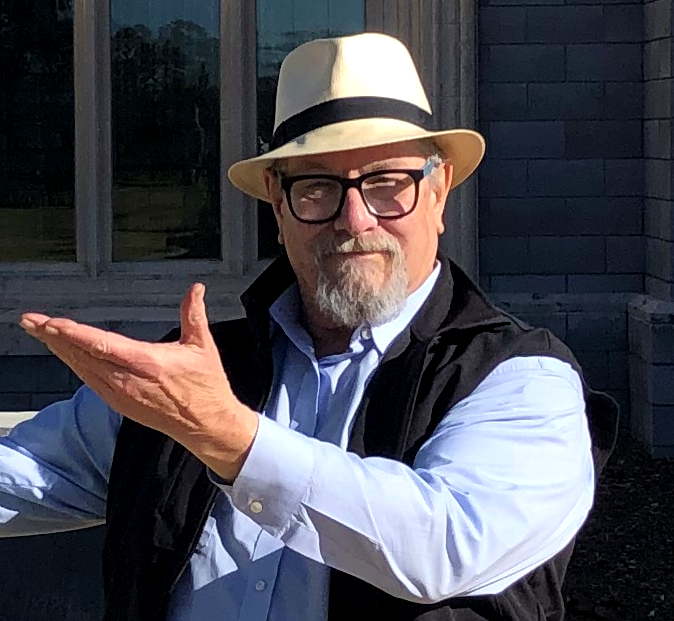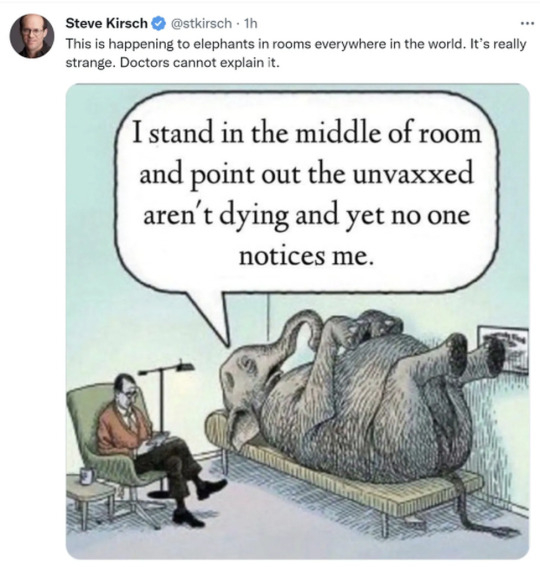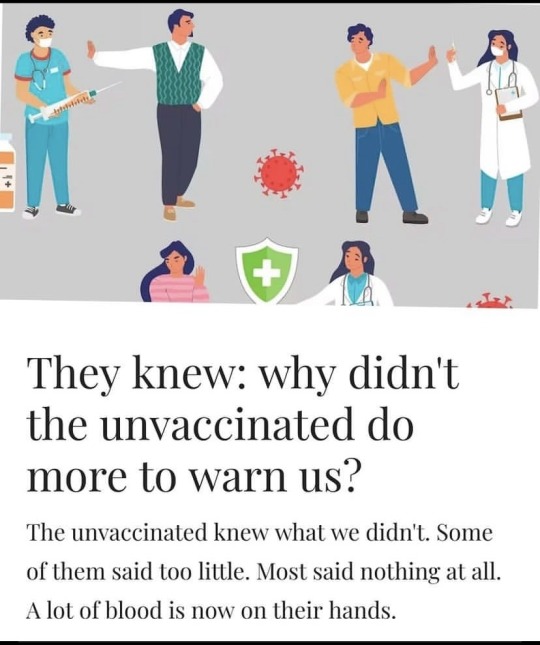[It’s time for something light-hearted, as I’ve actually been depressing myself with the public-affairs commentary. So have a story about a young man who works at a quack-remedies mill who discovers something that actually works…and finds love in the bargain — FWP]
==<O>==
Harley Crandall is a Texan émigré and a businessman of the old school. The oldest school: the one that regards caveat emptor as the only binding commandment. He’d sell you your own hat if you were fool enough to leave it on his counter–and he’d charge you a transaction fee should you demand a refund.
All the same, there’s no more successful figure in what’s euphemistically called “over-the-counter medicine”…what we insiders prefer to call legalized quackery. Virtually everything we sell is close enough to useless to make no difference, but it’s what we do, and it sells. The federal government regulates all the useful stuff to the hilt. The medical profession is in full accord with the policy, since it forces the sick layman to pay for more visits to the doctor. And don’t look to the drugstores for an objection; they rake it in bigger than everyone else.
Still, hope springs eternal in the achy, sniffly breast. People will always put more credence in a sunny-sounding promise than in the harsh and unsparing laws of economics; if you need proof, just contemplate your elected officials. So when a patent nostrum firm comes out with something it claims will relieve some misery that nothing else has helped, millions of good-hearted, overly trusting souls will pull out their wallets in a fresh demonstration that hope will always triumph over experience.
And to think they used to tar and feather snake-oil salesmen.
Anyway, Crandall Pharmaceuticals was my first employment opportunity after I received my doctorate. In truth, it was my only employment opportunity. When CP’s offer arrived I’d been out of school for more than a year, had been living for two months on a diet of chow mein noodles and chicken bouillon, and was getting low enough to consider taking a gig at a home-improvement warehouse. Despite the firm’s less-than-sterling reputation, I was thrilled by the offer. By then I’d have been thrilled by any offer at all. I did force myself to ponder what starting my career at a patent-medicines firm would do to my later prospects. For about five milliseconds.
I didn’t realize that it was for show. CP had to have at least a facsimile of a research group to make it look serious. In twenty-three years of operation, no one in the group had ever come up with anything that would have a detectable effect on the human body—good or bad. Not too surprising, considering that the most up-to-date equipment in our labs was a twelve year old mass spectrometer. Neither was it a place to rub shoulders with great minds in the field. Over those twenty-three years, only two pharmacologists had ever left the group…one to become a bookkeeper, the other to manage a bowling alley.
We did a lot of time-filling and kaffeeklatsch-ing.
Still, I liked pharmacology. I wanted to make my mark. I kept thinking about the great unsolved problems in the field. I dreamed of possible approaches to solving them. Interleaved with all the time-filling stuff, of course.
There were some nice things about the job. For one, if you wanted to be left alone, you’d be left alone. For another, the boss’s door was sincerely open. If you had a product idea, he’d give you his full attention, no matter whether you’re the assistant night janitor or the queen of the may. For a third, there was Teresa Hallberg.
Terri isn’t a classic “looker.” She’s average height and weight. Her typical style of dress for a work day, a consistent marriage of oversized fleece sweatshirts, jeans, and low-quarter sneakers, hid her figure assets from a potential admirer’s eyes. But she has a pretty face. Not glamorous, not exotic, not alluring; just pretty. Yet from the first I found her more appealing than any of the great beauties Hollywood has shown us.
It’s probably an effect of her personality. It’s a winner. She’s lively and cheerful without overdoing it. You can’t help but smile when she approaches, and the smile tends to linger for awhile after she leaves. No matter who you are, she’ll give you the impression that she’s sincerely glad to see you. At least if she isn’t, she’s never given a sign of it—and Crandall’s research group has had some pretty sour lemons in it.
It baffled me that at twenty-eight she was still single. I’ve known some seriously beautiful women—not in the Biblical sense, of course—who couldn’t come near to her appeal. You know the old canard about “the girl you’d happily take home to Mom?” That’s Terri.
I spent a fair amount of my typical work day chatting with her. I spent even more time looking for reasons to do so.
Terri was our lab manager and purchasing agent. Don’t ask me why a group with scant resources and virtually no budget needed such a person. There she was, holder of magna cum laude master’s degrees in biology and chemistry, working as a glorified secretary for a company that sold useless patent medicines, and I was glad of it. Any opportunity I got to stop by her cubicle was good enough.
It should be clear how I felt about her, but like most young science nerds, I was way too shy to do anything about it. For most of my two years at CP, I strained to work up the courage to ask her out. As our story begins, I hadn’t quite made it.
#
There was enough money and enough equipment—barely—to look into the properties of any compound we could get into the lab for a modest amount. When you read “modest,” think “trivial.” Crandall wouldn’t approve the purchase of anything that snuck into three digits unless you held a gun to his head. The whole time I was there, he never approved a purchase request for anything more expensive than a decent lunch, except for advertising.
Terri did manage to get me samples of a lot of common and obsolete compounds, though. I spent a lot of time pulling them apart and studying the parts with our old mass spectrometer. No one else was making much use of it, so why not?
There was one compound—sorry, I won’t say which—that was more interesting than the rest. It was originally marketed as a relaxant for irritated sinuses that would help you get your cold-riddled head through a night’s sleep without waking up every five minutes to cough or honk your honker. It worked about as well as most over-the-counter remedies: i.e., to no extent you’d notice. But it was complex, and had some interesting bonds in it that looked like the devil to produce, so I toyed with it for a fair while.
While I was playing with it, I caught my very own monster of a cold. After the initial siege, it left me with the most annoying of all supposedly minor maladies: the dreaded post-nasal drip.
Happy the man who’s never had post-nasal drip! The continual coughing and choking are enough to make you wish you’d never been born. You don’t dare to slough work for something so minor. All the same, your co-workers don’t want anything to do with you; your presence among them is too noisy, too disgusting, and too potent a reminder of their last encounters with the Tickle from the Trickle. So while you’re afflicted, you tend to keep to yourself…and to be left that way.
I was in the middle of analyzing one of the components I’d managed to separate out of the original preparation, an ester of benzodiazepine I was unfamiliar with. I’d taken it straight from the centrifuge to the mass spec without capping the tube. Unwise, I know, but the original compound was so utterly without significant known effects that it had lured me into carelessness.
I paused on the way to the mass spec to check my email. One-handed. With the uncapped tube in the other hand. Coughing violently all the while. You can probably guess what followed.
I didn’t get much of it on me. Most landed on my lab coat. A drop or two spattered on my hand. The rest fell on my desk. I growled, fished a cap out of my lab coat pocket, sealed what remained in the tube, and laid the tube down carefully while I finished up.
It took a moment for me to realize that my post-nasal drip was gone. Not just mitigated; completely gone. My throat was untroubled and my sinuses had become comfortably, healthily dry. For the first time in two weeks, I felt no slightest urge to cough.
“Holy shit,” I said. I didn’t realize I’d said it out loud…quite out loud.
Terri was passing nearby at the time. She stopped and peeked into my cubicle at the exclamation.
“Mike? Are you all right?”
I looked up and smiled.
“Dear God,” I said, “what is wrong with me that I can’t invite this sweet, gentle, totally wonderful creature out to dinner? It’s not like I’d be asking her to have my baby. I must be some sort of wimp.”
Again, out loud. Quite out loud.
Terri’s eyes flew wide. One hand went to her lips.
God bless her, she didn’t flee. She edged into my cubicle and peered at me as if I’d sprouted wings.
“Did you really just say that?” she murmured.
“Say what?” I said. “There she is, moron. As sweet as a June breeze and fresh as the morning dew, and you can’t bring yourself to ask her for anything but a box of pencils.”
Terri dropped to her knees, gasping.
“Terri? Are you all right?” I said. “Get off your ass and help her, idiot. This is your chance to be her hero. Don’t waste it.”
She fainted and collapsed into my arms.
It was a real grade-A faint. It took a couple of minutes of gentle nagging and rubbing of various extremities to revive her. Nate Kerrigan just happened to come by toward the conclusion of the process. He stopped and gawked. Of course he did. Nate’s never passed by a social gathering he thought he might be allowed to join, especially if there were any single women in it. Finding me with the office sweetheart unconscious in my arms was impossible for him to resist.
“Uh, Mike?” Nate said. His look of concern morphed into a lascivious grin. “Is Terri…okay?”
“You smarmy prick, you can’t look at anything in a skirt without getting that leer,” I said. At least that’s what I was later told I said. Nate’s face turned the brightest shade of red I’ve ever seen on a living creature. He stiffened and stalked away, leaving me wondering just what the hell was going on.
It didn’t take long. It became all too clear once Terri had returned to consciousness.
#
“I said that?”
Terri nodded. “You did. But Mike…”
I looked away. I couldn’t bear to look at her. The heat in my face testified to what must have been a world-class blush. I was on the point of vowing to become a Trappist monk.
“Mike?” She reached out hesitantly, put gentle fingers to my chin, and turned my head to face her. “I’d love to go out with you. I’ve been waiting for you to ask.”
I should have been overjoyed, but what she’d said hadn’t registered. I was too focused on the incredible faux pas I’d committed, and wondering whether I’d said something similarly unrestrained to Nate Kerrigan. From my memory of his reaction, it seemed all too likely.
“Forgive me, Terri,” I murmured. “I didn’t mean to upset you.”
She baffled me by giggling and caressing my cheek. “You didn’t upset me, silly. You surprised me. Didn’t you hear what I just said? I’ll happily go out with you. Just name a date, a time, and a place!”
That time it came through. “You would?”
She nodded. “I’ve been waiting for you to ask. No one else here is both nice and near enough to my age.”
“Oh.” I sat back. “But…what on earth made me…”
“Speak your mind?” she said. “I don’t know, but I thank God for it all the same.” She glanced at the capped test tube lying beside my monitor. “What are you working on?”
That’s what finally reminded me of the benzodiazepine ester I’d been working on…and what I’d done with it. I picked up the tube, uncapped it carefully, and eyeballed the contents. It didn’t seem to be precipitating in either direction. I forced a smile.
“It’s a component of an old patent medicine that was supposed to help a cold sufferer sleep,” I said. “Seems it was about as effective as the crap we sell. The manufacturer took it off the market years ago. But this piece of it seems to have some effects all its own.”
She waited, eyes intent.
“I think it cleared up my post-nasal drip.”
That rolled her eyelids all the way up. “Completely?”
I nodded. “Remember how I couldn’t stop coughing? I haven’t got the hint of a tickle now. I can’t think of another explanation.”
There was a moment of silence.
“All by itself,” she said, “that’s a billion-dollar discovery. Assuming the other effects aren’t too terrible.” She looked me in the eyes and waited.
“Well, that’s the other part.” I recapped the tube and thought for a moment. “I can’t come up with another explanation for…the other thing that happened.”
Terri pressed her lips together. “The stuff you said.”
“Yeah.”
Her face brightened visibly. She rose, took my hands, and yanked me out of my seat. Quite a feat, as I’m nearly a foot taller and about a hundred pounds heavier than she is.
“A good scientist,” she intoned, “never allows a plausible hypothesis to go unexplored. He designs experiments to test its validity.” She grinned mischievously. “Over and over and over. You know, looking for a falsifying result. The last I noticed, Adamski and Peterson were coughing just like you.” She set her arms akimbo. “Well, Dr. Conlon? Where’s your scientist’s initiative…and your lab notebook?”
My grin rose to match hers. I knew it would be wrong. I knew it would cause no end of trouble. I knew Crandall would find out and raise holy hell. It might even get us both fired.
We did it anyway.
#
Yes, Crandall called us onto the carpet.
“According to your colleagues,” he said as he doffed his Stetson and hung it on the rack behind his desk, “you two were the only ones who stayed completely out of the riot. I might not run the tightest ship in our industry, but I’m not gonna sit around while my PhDs get into fist fights and break up my expensive glassware.” He plopped his ass into his custom-built leather desk chair, steepled his hands, and glared at us. “Especially not if two of ‘em were the cause. Just what kind of mischief have you gotten into?”
Terri visibly suppressed a giggle. Crandall’s glare swerved from her to me. “Conlon?”
I produced what I hoped was a blandly innocent smile. “An informal test of a potential product.”
“And what is this product supposed to do?” he growled. “Apart from starting a riot in my lab, that is?”
“It appears to provide complete and immediate relief,” I said in my most scholarly cadence, “from the condition called post-nasal drip.”
That altered the whole tenor of the exchange. Crandall’s mouth dropped open. His eyes went wider than I’d ever seen them. You could almost see the dollar signs cavorting in his brain.
“Permanent or temporary?” he said.
“That’s as yet uncertain.” I shrugged. “It’s only been three hours since I, ah, self-administered the substance under investigation, and less than that since I…extended the experiment to our colleagues. We could check, of course. Do you have the phone number at Onteora General?”
Crandall’s glare returned. “Was the fight another of the effects of your…substance?”
“Not a direct consequence, no,” I said.
“More likely,” Terri chimed in brightly, “it resulted from Adamski calling Peterson an ‘obnoxious fraud’ and Peterson replying that Adamski’s wife is a ‘horse-faced pig.’”
“That would have done it,” I said. “Though I do tend to concur with Peterson’s evaluation.”
Terri’s hand flew to her lips. The giggle came out anyway.
“God damn it,” Crandall bellowed, “Can’t you be serious for five minutes? Exactly why did two perfectly ordinary researchers, who’ve barely even noticed one another’s existence up to now, decide to go at it hammer and tongs in the middle of a work day? Did this drug of yours…do something to them?”
“Well, of course it did, sir,” I said. “It cleared up their post-nasal drip. Perhaps that was the first time they could express their opinions of one another intelligibly.”
Crandall rose from his chair looking for all the world as if he were about to throttle me. I held up a placating hand.
“Candidly, Mr. Crandall,” I said, “there does seem to be an unintended side effect. It appears that the drug temporarily neutralizes the real-time verbal censor—the stage in our brains that prevents our entire thought stream from being orally expressed. If it weren’t for that, this would be the medical find of the century.”
Crandall’s expression went from furious to thoughtful.
“Let’s not be hasty,” he said. “How long does this…side effect last?”
I shrugged. “Long enough to cause a fist fight between pharmacologists with time on their hands.”
“Conlon…” he growled.
“I can’t really say, sir,” I said. “A psychotropic effect such as this is very hard to measure accurately. The onset occurs in less than a minute. The, ah, null-censorship phase lasts at least two or three minutes.” I glanced at Terri. “But it’s over about five minutes from onset. At the very most.”
If there’s an entry in the dictionary for unbridled money lust, you’re guaranteed to find the expression my estimate produced on Harley Crandall’s face right next to it.
“That’s good enough,” he said.
#
Crandall swore us to secrecy, on pain of death and worse than death. He promised that if either of us so much as muttered about the compound in our sleep, he’d have us disemboweled in Macy’s Herald Square window, our entire families murdered, and all the bodies strung up for the buzzards. Then he set us to work.
The task was almost painfully obvious. We had to find a way of administering the ester that would keep the user from speaking intelligibly until his verbal censor was back on duty. We could numb his tongue. We could paralyze his vocal cords. We could force him to speak some unknown language in which sexual innuendo was unknown and insults had never been invented. The user’s muting only had to last for five minutes, so anything that would disable his speech functions for that long, but would otherwise leave him alive and well, would suffice.
We had a lab to ourselves. For the first time, I had Terri working beside me. It made perfect sense. She already knew; no one else did. Besides, it had been obvious for a long while that her intellect, knowledge, and energy were seriously under-employed.
We proved to be an efficient partnership. Our verbal communication was terse but clear. Our physical coordination was spookily smooth. We often reached the same conclusion at the same instant. It made the work fun.
Fun, but frustrating.
The ester was powerful. Transcutaneous subduction would induce its effects as swiftly and powerfully as inhalation. A drop you could produce with an eyedropper, if applied to the skin, would induce the null-censorship effect within seconds. At least, that’s what it did to Terri and me. It did help us to make some fascinating discoveries about one another, though.
Crandall absolutely forbade us to experiment further on other CP employees. A pity; the first trial been such fun.
However, nothing we tried would dampen the null-censorship effect. Worse, the tiniest modifications of the molecule robbed it of the main effect, rendering it no more effective than…well, than anything else CP sold. We threw up our hands and tried buffering. We tried every buffering technique approved by the FDA. None of them worked either, but every one of them nullified the ester’s potency against post-nasal drip.
We had to make do with a specially designed delivery system.
#
Crandall turned our device in his hand, struggling to understand how it fit the bill.
“Exactly how,” he said, “is this supposed to work?”
“The smaller bulb,” I said, “contains the minimum dose of the drug that will eliminate a post-nasal drip, suspended in a small amount of distilled water. To administer it, the user must put the large bulb into his mouth, clamp his lips and teeth tightly on the neck, press the white button on the other end—”
“And suck like he’s trying to pull a golf ball through a garden hose,” Terri piped up.
“Terri!” I said.
“Never you mind, Conlon,” Crandall said. “So the device itself will prevent him from shooting off his yap, eh?”
I nodded. “No human being can produce a suction strong enough to ingest the whole dose in less than five minutes. At that point, the anti-censorship effect would have passed.”
Crandall grinned wolfishly. “And it’s just a big ol’ piece of rubber.”
“With a single-use atomizer embedded in one end,” Terri said.
“How long before the post-nasal drip comes back?”
“About a day,” I said.
“Well glory hallelujah,” Crandall said. The Texas twang he usually took great pains to suppress was in full flower. “You two are in for a pair of fat raises.” He sat back and swung his cowboy boots onto his desk. “And I’ve got a mansion on Aruba all picked out.”
#
Crandall set his finagling powers to work at once. He went to the manufacturer of the original drug and negotiated to purchase the patent. He got the FDA to agree that the drug was already approved for human consumption, had no perceptible ill effects, and could be safely taken orally in doses far larger than the tiny amount in our delivery device. The medical-devices section approved the device itself with stupefying speed. Crandall obviously knew which palms to grease and how thickly.
While he and his marketing gurus were hashing out the publicity campaign and arguing over a name, Terri and I were learning interesting things about one another. Lots of interesting things.
One night after…well, one night kinda late, she propped herself on an elbow and asked me The Question: the one every pharmacology researcher is supposed to ask himself at every moment of every day.
“Did we overlook anything?” she said.
I smirked and looked her up and down. She was much shapelier than I’d ever guessed from the way she dressed for work. “I don’t think I did, though I’ll let you speak for yourself.”
She giggled and tweaked my nose. “You know what I mean. We didn’t test it for very long, or have a huge sample space to try it out on. Could there be any extra effects, say from long-term use, that we ought to know about?”
I shrugged. “The sample space was what it was. Crandall would have had a cow if we’d, ah, returned to our earlier testing protocols. And long-term use doesn’t strike me as a concern, since the drip goes away after about seven days and the drug promises nothing but relief from that. What’s on your mind, love? Did you think of something else?”
She didn’t answer at once. It set me to worrying.
“I’ve been thinking about the device itself,” she said at last. “It’s pretty obvious that the value is in the little end. Won’t someone eventually slice a few of them open and try ingesting the contents all at once—no delay?”
“Well,” I said, “he’d have to pierce that little atomizer pretty carefully to avoid spilling the whole dose.”
“You know someone’s going to manage it eventually,” she said. “Then what?”
“Then we read about it in the papers.”
“Mike…”
“I know, I know.” I gathered her into my arms and relished her softness and warmth as she snuggled against me. “Divorces. Affairs. Firings. Promotions. Bar fights. Celebrities coming out of the closet. Criminals confessing to unsolved crimes. Talk show hosts asking politicians serious questions and the politicians answering with the truth. God alone knows what else. But Terri, every negative consequence I can imagine is matched by a positive one. Add the defeat of the ancient scourge of post-nasal drip and how does the balance sheet read?”
“I don’t know, Mike.” She rested her chin on my shoulder. “But maybe we ought to arrange to be somewhere else before it’s read in public.”
I said nothing more. She had a point.
#
The Big Day featured two events of world-shaking impact. The later one was the one o’clock announcement of Trickless, the name CP’s marketing group had bestowed upon the anti-post-nasal-drip drug. The earlier one—four hours earlier—was Crandall’s summons to his office for his grandiloquent announcement of the “fat raises” he’d decided to bestow on Terri and me.
Five percent.
We’d given him a drug that would make CP several billion dollars per year—and as CP is a sole proprietorship, he’d get it all. For this gift of riches beyond the imagination of any emperor, he increased our not-particularly-generous salaries by five percent.
I controlled my reaction with an effort. Terri let a bit more of hers show on her face, but she managed to keep silent. When Crandall dismissed us, I hustled us out of his office and clean out of the building.
The door had barely finished closing behind us when Terri erupted in a shrieking fit.
I shan’t reproduce her words. Some of them were of a category I’d never heard from her before. But she could have chanted “hasenpfeffer, hasenpfeffer, hasenpfeffer,” and her fury would have come through loud and clear.
It took me several minutes to calm her down. The result of the process was an angry glint in her eye and an inexorable suspicion on my part that she had resolved upon revenge.
My suspicion was correct.
#
Crandall doesn’t spend money on much, but he excludes from his penchant for penury anything he thinks might benefit him personally. So CP’s public-access room is a far richer sight than anyone might guess from the Spartan condition of our labs.
The room’s lectern was a beautiful piece of darkest mahogany. The fittings were gleaming brass; the antique-style microphone, which was hardly necessary given the modest size of the room and the usually modest turnout of the press for a Crandall proclamation, was polished silver.
No one but Harley Crandall had ever stood at that lectern, and likely no one ever would.
When the appointed hour was upon us, Crandall shepherded the research team into the room as his entourage, almost like a palace guard. With the dour gazes of a couple dozen weary-looking reporters upon us, we marched in dutifully and lined up against the wall behind the lectern. The great man himself went straight to his accustomed place, glanced down at the brass handrail, and turned a dangerous shade of red.
Terri darted forward. “Is it smudged, sir?” she said.
She didn’t wait for an answer. Instead she pulled a folded handkerchief out of a hip pocket and rubbed the rail vigorously along its full length. Presently she smiled and invited Crandall’s renewed attention. He scowled, motioned her back, and rested his mitts upon the rail as he beamed at the assembled agents of the Fourth Estate.
“Ladies and gentlemen,” he boomed, “Crandall Pharmaceuticals has completed the development, testing, and certification for human use of a remedy for one of Mankind’s most annoying afflictions: the terror called post-nasal drip.” He fished an applicator out of his jacket pocket and waved it back and forth at the crowd. “Our new product, which will bear the registered name Trickless, will be made available over the counter in pharmacies and supermarkets nationwide, beginning this coming Monday.”
I was surprised to hear his Texas twang come forth.
“Now you fine folks have helped me to promote remedies for various minor ailments before, and most of them were crap, so you’re probably thinkin’ ‘the old boy is gonna try hornswogglin’ us again,’ but this time it’s for real! I know, the other stuff we sell ain’t no better’n sugar pills an’ don’t taste near as good, but clamp yore yap on the fat end of this baby, press the li’l button on the other end, and suck for about five minutes like a whore tryin’ to get all the chrome off a trailer hitch, and yore drip’ll vanish faster’n yore dreams of a Pulitzer. For ‘bout a day, that is. I mean, if the effect were permanent, I’d hardly make money on it, an’ I mean t’have a crib in Aruba so plush that the president himself will beg me to invite him for a weekend of bunnies ’n’ coke.” He leered. “Y’all know how Prexy loves that shit, don’t ya?”
There are no words sufficient to capture the astonishment of the assembled gentlemen of the press. They’d have been no more stunned had Godzilla crashed through wall in a tux and tails, fanned out a deck of cards, and invited them to pick one.
A moment later they were streaming out the door, every one of them tapping furiously on his tablet or smartphone. Crandall frowned.
“Hey, what’d I say?”
Less than a minute later the reporters had run en masse from the room. So had all my fellow pharmacologists. Terri pulled me out to the parking lot, where every reporter I could see was talking furiously on his cell phone.
Crandall came out behind us a minute later. His look of stunned incredulity was better than any five percent raise.
#
Yes, Harley Crandall is a greedy bastard with the morals of a rattlesnake. Yes, he’d sell his daughters into slavery for a shot at a million-dollar haul, even at ten to one against. But he isn’t stupid. At one-twenty he bellowed at Terri and me that we no longer had jobs at CP and had better never darken his door again. By one-thirty we’d collected our belongings and were on our way back to the apartment we’d rented together at Lakeshore Vistas.
It was far from being a sad occasion, though I didn’t realize that at first. Just the day before, Terri had learned something she hadn’t yet told me…something Crandall would learn to his sorrow, but only after we’d made the appropriate use of the information.
He’d bought the patent on the wrong drug.
==<O>==
Copyright © 2020 Francis W. Porretto. All Rights Reserved Worldwide.






















